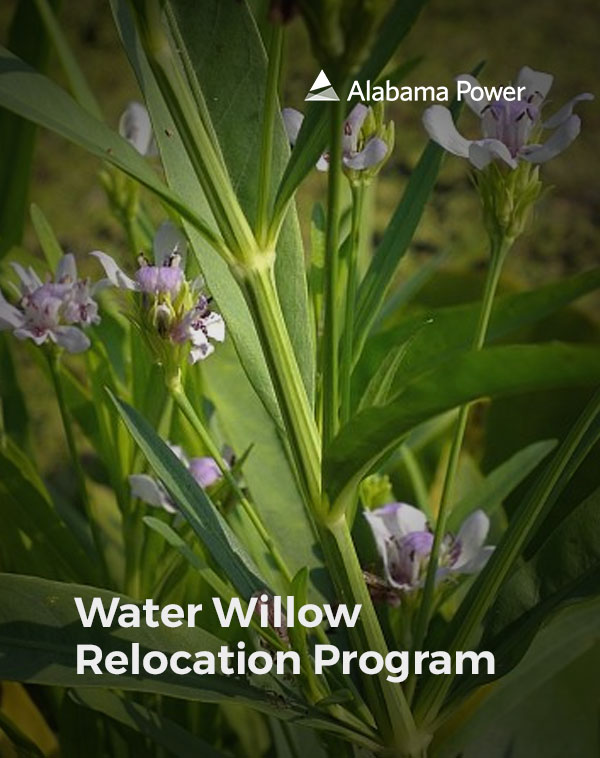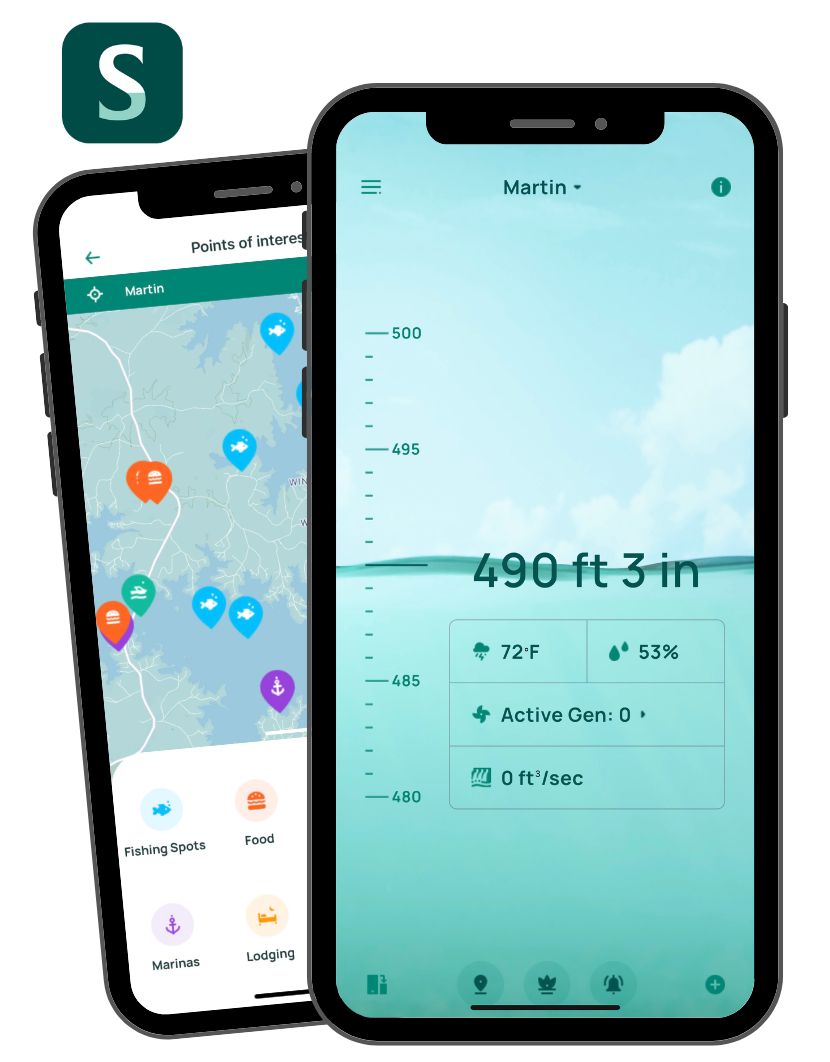Managing Aquatic Plants
Like many utilities, we must abide by federal regulations. The Federal Energy Regulatory Commission (FERC) regulates the interstate transmission of electricity, natural gas and oil. FERC also licenses hydropower projects. We have FERC licenses to operate all our hydroelectric projects and allow us to utilize rivers to generate hydroelectricity. During the FERC relicensing process, the Invasive Species Management Plans for each project were developed with the assistance of stakeholders as well as federal and state agencies. The plans also include our aquatic plant management guidelines, which are listed below:
Alabama Power Company recognizes the ecological importance of aquatic vegetation and manages this vegetation accordingly. The goal of our aquatic plant management program is to manage aquatic vegetation to best suit the many uses of our reservoirs.
Aquatic vegetation will be left in its natural state to enhance fishery habitat and the natural beauty and ecology of the reservoir if control criteria are not met. If native plants are creating access issues, they will only be controlled within approximately 20 feet of existing structures (ex. Piers, boat house, swim area, etc.).
Before any aquatic vegetation control measures are enacted, each request or site is assessed by Alabama Power Company biologists. If the aquatic vegetation concern meets one of the four criteria below, then control may be performed:
- Creates a potential public health hazard by providing a mosquito breeding habitat. (Ex. Certain aquatic plants grow in dense mats that are ideal for mosquito larvae.)
- Poses a threat to power generation facilities or water intake structures. (Ex. Thick mats of aquatic vegetation can break loose and clog water intakes.)
- Restricts recreational utilization of the reservoir. (Ex. Aquatic vegetation, native or non-native, can limit access or recreational use of the reservoir.)
- Poses a threat to the ecological balance of the reservoir. Exotic plants typically outcompete native plants and can disrupt the natural ecology of the reservoir. Common exotic species include hydrilla, Eurasian water milfoil, spiny-leaf naiad, water hyacinth, and water lettuce.)
Downloadable Resources
In an effort to increase native aquatic vegetation,
Alabama Power initiated its water willow relocation
program in 2015.
Frequently Asked Questions
Alabama Power recognizes the ecological importance of native aquatic plants in company reservoirs. Aquatic plants provide food and habitat to fish, wildlife and other aquatic organisms. They also stabilize sediments, help reduce erosion, and improve water clarity. Excessive vegetation and exotic species can limit human uses of the resource, increase the risks associated with flooding and create conditions that threaten human health. We strive to balance all the recreational uses of the reservoirs by promoting native vegetation and managing nuisance and exotic species. One way we do this is through our Water Willow Relocation Program.
Alabama Power must manage aquatic vegetation on its reservoirs to protect the ecology of the river and to comply with Federal license requirements. Aquatic plant management activities include control and enhancement. Learn more on why we manage aquatic vegetation.
Call 1-800-LAKES-11 to speak with one of Alabama Power’s biologists. Each situation is evaluated on a case-by-case basis and assistance is not guaranteed. If the issue meets one of our management criteria and treatment is warranted, the vegetation may be treated with EPA-registered herbicides which are applied by licensed applicators. For help identifying common aquatic plants found on our reservoirs, click here.
Alabama Power Company’s treatment guidelines state that action could be taken on aquatic plants if they create a potential public health hazard by creating a mosquito breeding habitat and/or if exotic species are identified. Dense mats of vegetation are prime habitat for mosquitoes since they prevent fish from effectively feeding on mosquito larvae. In addition, floating exotic plants such as water hyacinth and water lettuce drift into backwater areas or may be hidden behind stands of native water willow where their populations can expand rapidly. Submerged vegetation such as Spiny Leaf Naiad, Eurasian Watermilfoil and Hydrilla also become established in areas with no houses. Exotic species must be treated wherever they are located to prevent their spread to other parts of the reservoir.
Aquatic plant managers are occasionally asked why they spray while fish are spawning because there is a belief that spraying during this time will kill bedding fish and therefore cause an unsuccessful spawn. Dr. Mike Maceina, fisheries professor (retired) at Auburn University and professional fisheries biologist, developed a study to determine how applying herbicides during the spawn impact nesting. The study concluded “the production of young bass was the same in ponds sprayed with water as those sprayed with the herbicide”. Dr. Maceina’s study results were published in BASS Times.
Spring is also the time of year when aquatic plants are actively growing and most susceptible to herbicides. Treating vegetation during this time of year actually reduces overall control efforts and the amount of herbicides used because there is less aquatic plant biomass and treatments are more effective.
All herbicides used in Alabama Power’s aquatic plant management program are approved by the EPA for aquatic use. These herbicides target specific physiological processes in plants and when used according to the label, cause no harm to humans or animals. For more information on the safety of aquatic herbicides, read this article developed by the Aquatic Ecosystem Restoration Foundation. Many herbicides are less toxic than common household products. Click here for a chart comparing the harmful dosage of common household products to herbicides.
Most of the world’s worst invasive species problems were created by mankind. The spread of non-native plants and animals can be reduced by following some simple guidelines: Remove aquatic plants from boat trailers and empty live wells before leaving the boat ramp. Don’t dump aquarium plants or animals into waterbodies. Since nutrients can contribute to aquatic plant problems, don’t dump grass clippings or other yard waste into the water. There are laws against possessing and transporting invasive species and it is illegal to release any aquatic organisms in Alabama without a specific permit. Other simple things you can do are outlined here on the Alabama Department of Conservation and Natural Resources’ website.





